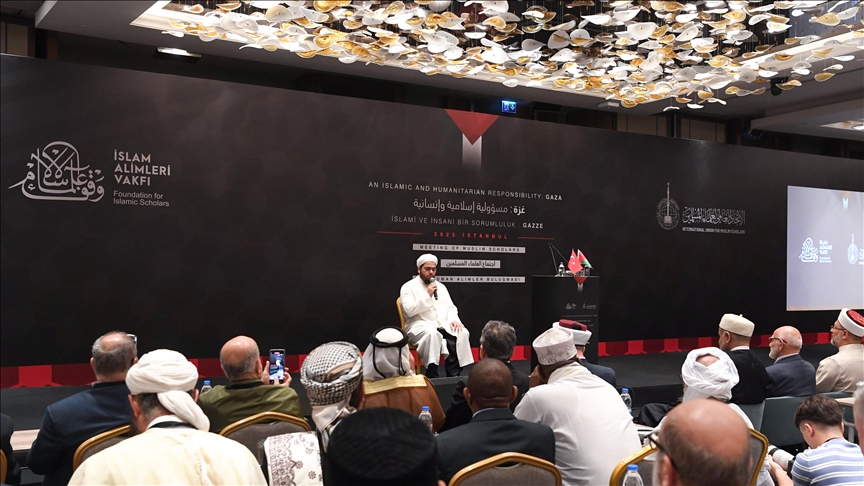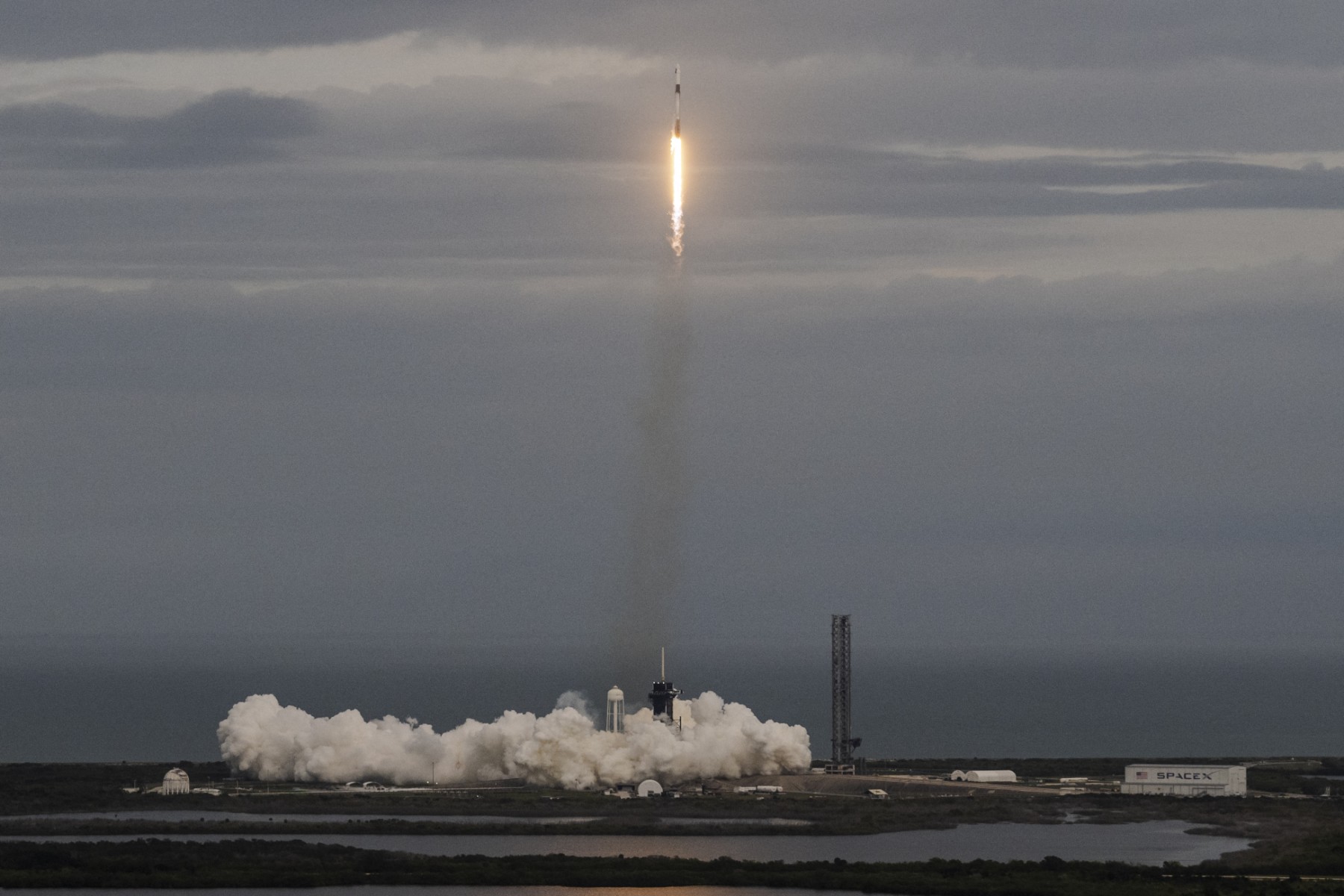Gaza Conference in Istanbul highlights Islamic duty toward Al-Aqsa
- Delegates on Democracy and Freedom Island debate sanctity of Al-Aqsa Mosque, lessons of history, and practical strategies for global Muslim unity as Israel’s genocide on Gaza rages on
- ‘Not a Palestinian issue, but of humanity’: South African Islamic scholar Sheikh Gabriels warns that global silence betrays Gaza’s suffering
ISTANBUL
The eight-day Gaza Conference’s fourth day continued Monday on Democracy and Freedom Island in Istanbul, with a series of workshops on the protection of the Al-Aqsa Mosque, the historical lessons of the medieval Crusades, and strategies to strengthen unity across the Muslim world.
In the morning session, participants split into groups to discuss “the value of Al-Aqsa Mosque, the threats it faces and what must be done for its protection,” while another group examined “the duties of Muslims toward Al-Aqsa.”
The discussions underscored the centrality of Jerusalem to the Islamic faith and the shared responsibility of safeguarding its sanctity.
The afternoon program turned to historical and political questions, with one group analyzing “the causes that initiated the Crusader occupation” and another reflecting on “the reasons that would bring it to an end.”
Later in the day, the focus shifted toward the themes of unity.
Delegates explored ways to revive the message of “Jerusalem Unites Us” and to build consensus among Islamic institutions around the principle of Ummah al-Wasat (the middle nation), emphasizing balance and solidarity.
The evening concluded with a review meeting of workshop leaders, followed by the drafting of reports to be presented in a general session.
The conference, titled Islamic and Humanitarian Responsibility: Gaza, is jointly organized by the International Union of Muslim Scholars (IUMS) and the Foundation for Islamic Scholars in Türkiye. It has drawn more than 150 scholars and representatives from over 50 countries to discuss Israel’s ongoing genocidal war on Gaza and the broader response of the Muslim world.
On Saturday, leading figures, including IUMS President Sheikh Ali Muhyiddin al-Qaradaghi, Türkiye’s top cleric Ali Erbas, and IUMS Secretary-General Sheikh Ali Muhammad al-Sallabi, stressed the urgent duty to deliver aid to Palestinians.
Guest contributions were also made by Sheikh Ahmed Hassan al-Taha of the Iraqi Fiqh Council and Professor Nasrullah Hacimuftuoglu, the president of the Foundation for Islamic Scholars in Türkiye.
The conference began Friday with prayers at Istanbul’s Eyup Sultan Mosque and will conclude on Aug. 29 at Hagia Sophia Grand Mosque with the “Istanbul Declaration,” which organizers say will outline the “concrete steps for political, humanitarian, and legal action” in support of the Palestinian cause.
South African scholar links Gaza struggle to global responsibility
Speaking to Anadolu on the sidelines of the conference, South African Islamic scholar Sheikh Ebrahim Gabriels highlighted his country’s long-standing role in international forums, particularly its case against Israel at the International Court of Justice.
“South Africa, we are very proud of our country and our government. They are the only country in the whole world that has taken the Zionist state to the International Court of Justice,” he said, noting that Muslims in South Africa also remain highly active on the Palestinian issue through protests and community initiatives.
He pointed to a unique campaign in Cape Town: “For 22 years, we are fasting every Thursday. And we call the program ‘Fasting Until Liberation.’ Old people, young people, children, they all are busy with the issue of Palestine. And Palestine is the main issue for us and for the whole world.”
‘Worse than it was in South Africa’
Drawing a parallel between South Africa’s struggle against apartheid and the Palestinian plight, Sheikh Gabriels recalled the words of former President Nelson Mandela: “We won’t be able to enjoy our freedom in South Africa until Palestine will be free.”
He added that the current system of oppression in Israel is “worse than it was in South Africa,” echoing the remarks of former South African Foreign Minister Nkosazana Dlamini-Zuma.
Gabriels also criticized the silence of many Muslim-majority states, saying: “It’s sad to say that most of the Muslim countries and Arab countries are not doing what they’re supposed to do. Because there are Christians and Jews in America and Europe, they are standing up. (There are) big marches in Australia, but we don’t see any marches in the Arab countries.”
‘Not Palestinian issue’ but ‘of humanity’
On the role of religious leaders, he stressed the need for spiritual revival: “If the Muslims are close to Allah, then Palestine will be close to their hearts. But if the Muslims are far away from Allah, Palestine won’t be.”
He recalled how an Israeli prime minister once remarked that “as long as the Muslims are not (performing) fajr (dawn prayers) in the masjid, they are still safe.”
For Gabriels, this reflected the urgent responsibility of scholars “to bring the Muslims closer to Allah and closer to their Deen (religion) and closer to the Quran.”
He emphasized that the Palestinian issue is not only political but moral and universal: “The issue of Gaza, the issue of Palestine, the issue of Al-Aqsa, it’s not a Palestinian issue. It is an issue of humanity and more so an issue of Muslims.”
Gabriels ended on a hopeful note, recalling a message of solidarity: “One of the Turkish professors teaching in the University of Cape Town went on Instagram with our fasting campaign. An old man in Türkiye, when he saw that we are fasting every Thursday, he said, ‘I’m also going to fast now as long as I’m going to live for the liberation of Gaza.’ That should be the spirit of the Muslim ummah.”
Anadolu Agency website contains only a portion of the news stories offered to subscribers in the AA News Broadcasting System (HAS), and in summarized form. Please contact us for subscription options.




